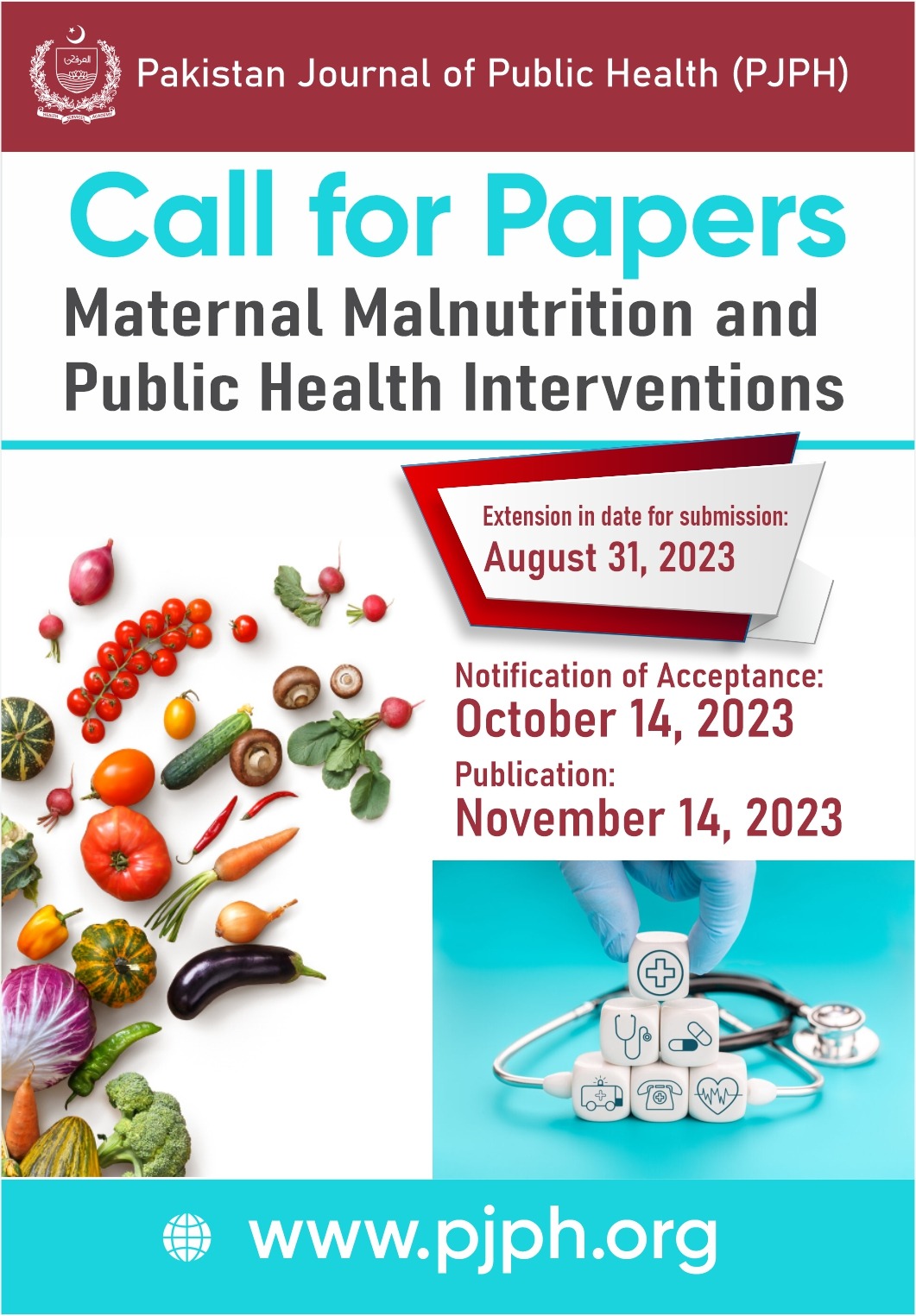Family Planning Methods Utilization in Women of Reproductive Age Group: Evidence from Regionally Representative Data from Karachi, Pakistan
DOI:
https://doi.org/10.32413/pjph.v11i4.792Keywords:
contraceptive, Family planning, Methods, Practices, Reproductive aged women, UtilizationAbstract
Background: To assess the status of knowledge and practices about family planning utilization and its influencing factors among women of reproductive age group in Karachi, Pakistan. The study design was analytical cross-sectional study. The Place and Duration of Study was Combined Military Hospital, Malir Cantt from January to March 2021.
Methods: Data was collected from 426 participants visiting outpatient department of a tertiary care hospital, using structured questionnaire. Nonprobability, convenient sampling technique was used to select study participants. Data was analyzed in Statistical Package of Social Sciences, version 23.
Results: Family planning knowledge and practicing contraceptive methods utilization among women of reproductive age group was 73.94% and 55.16% respectively. Effectiveness of contraceptive methods was acknowledged by 57.27%. Family planning utilization practices were statistically associated with educational status, marriage duration, number of children, knowledge, availability, suitability and effectiveness of FP methods and husband support. Family planning centers and hospitals were the most common (41%) sources of information and desire to conceive was found to be the leading cause (54.2%) to attain family planning services.
Conclusion: Overall the study revealed satisfactory knowledge about family planning with relatively low practices or utilization of contraceptive methods. Researches using qualitative approach are recommended to gain deep insight of women’s internal feeling regarding family planning. Besides, reasons for non-utilization of family planning services need to be explored further.
Downloads
Published
Issue
Section
License
Copyright (c) 2022 Saba Rizwan, Farhan Muhammad Qureshi, Sidra Siddiqui, Amna Binte Rizwan, Hamid Jamal Siddiqui, Muhammad Tahir, Samira Faiz

This work is licensed under a Creative Commons Attribution-NonCommercial 4.0 International License.






